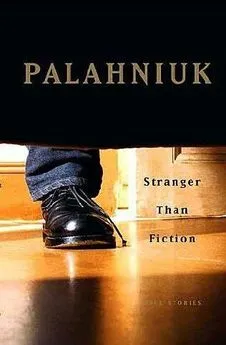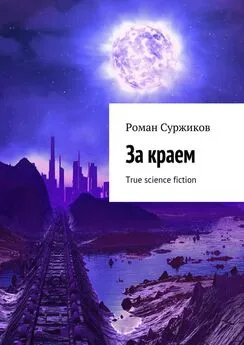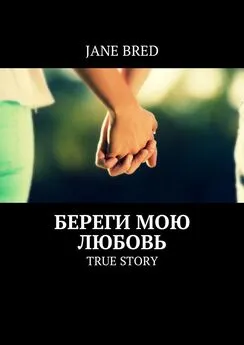Chuck Palahniuk - Stranger Than Fiction (True Stories)
- Название:Stranger Than Fiction (True Stories)
- Автор:
- Жанр:
- Издательство:неизвестно
- Год:неизвестен
- ISBN:нет данных
- Рейтинг:
- Избранное:Добавить в избранное
-
Отзывы:
-
Ваша оценка:
Chuck Palahniuk - Stranger Than Fiction (True Stories) краткое содержание
"Full of wonderful moments…Palahniuk's voice is so distinctive and intimate-he writes as though he is recounting a great story to a close friend." — Los Angeles Times
"Step into Palahniuk's dark worldview and watch for what crawls out. These stories are true to him and no one else." — The Oregonian
“One of the oddest and most oddly compelling collections to come along for some time.” —The Milwaukee Journal Sentinel
“In Chuck Palahniuk’s world, the ride is fast, often disturbing, and there is never any holding back.” —The New Orleans Times-Picayune
“Eccentric, idiosyncratic, and often entertaining.” —The Onion
"Priceless grace notes from an exceptionally droll and sharp-eyed observer." — The New York Times
“Rarely does a collection of essays continually resonate with a main theme and accumulate a weight that would lead you to call it a great book. . This is a pretty great book.” —The Seattle Times
"The book's lurid appeal rests largely on being let in on Palahniuk's secrets, the raw material for much of his fiction. . Acts that give spice to his novels are made more menacing when encountered in the real world." — Black Book
Stranger Than Fiction (True Stories) - читать онлайн бесплатно полную версию (весь текст целиком)
Интервал:
Закладка:
He says, "Because each card has so many different symbols, there is a real magic, ritual element to it. When you shuffle, you're supposed to transfer your energy to the cards. It sounds kind of hokey. It's not something I do all the time. I like the symbolism much more than the trying to rely on divination.
"I think a reasonable question would be, 'What's next? " he says, about to deal the cards and begin his reading. "More specific, 'What's my next step?»
Manson deals his first card: the Hierophant
"The first card that you put down," Manson says, looking at the upside-down card, "this represents wisdom and forethought, and the fact that I just dealt it upside down could mean the opposite-like a lack. I could be naive about something. This card is, right now, my direct influence."
This reading takes place after Rose McGowen's left the house they share in the Hollywood Hills. After Manson and McGowen played with their Boston terriers, Bug and Fester, and she showed him a catalogue with the Halloween costumes she wants to order for the dogs. She talks about the "Boston Tea Party," where hundreds of people parade their Boston terriers around an L.A. park. They talk about how they rented a 1975 powder-blue Cadillac limo-the only rental available-to drive out to some snow-bound farm in the Midwest where they bought two of the terriers for Manson's parents.
Her car and driver are outside, waiting. She's catching a red-eye flight to Canada, where she's making a movie with Alan Alda. In the kitchen, a monitor shows views from the different security cameras, and McGowen talks about how different Alan Alda looks, how big his nose is. Manson tells her how, as men grow older, their nose and ears and scrotum keep growing. His mom, a nurse, talked about old men whose balls hung halfway down their legs.
Manson and McGowen kiss goodbye.
"Thanks a lot," she says. "Now when I work with Alan Alda, I'll be wondering how big his scrotum is."
In the attic, Manson deals his second card: Justice
"This could be referring to my judgment," he says, "my ability to discern, possibly with friendships or business dealings. Right now this is representing where I'm at. I feel a little naive or unsure about either friendships or business dealings, which does particularly apply to certain circumstances between me and my record company. So that makes every bit of sense."
The day before, in the offices of his record label on Santa Monica Boulevard, Manson sat on a black leather sofa, wearing black leather pants, and whenever he shifted, the leather-on-leather made a deep growl sound, amazingly similar to his voice.
"I tried to swim when I was a kid, but I could never deal with the water in my nose. I have a fear of the water. I don't like the ocean. There's something too infinite about it that I find dangerous."
The walls are dark blue and there are no lights on. Manson sits in this dark-blue room with the air conditioning blasting, drinking cola and wearing sunglasses.
"I guess I have a tendency to like to live in places where I don't really fit. I started out in Florida, and maybe that made me not fit. That was the thing that drove me to like and be attracted to everything opposite of my surroundings, because I didn't like the beach culture."
He says, "I used to just like to look. When I didn't know anybody and I first moved to Florida, I'd sit and I'd watch people. Just listen to conversations and observe. If you intend to create something that people will observe and listen to, you've got to listen to them first. That's the key to it."
At home, in the attic of his five-story house, drinking a glass of red wine, Manson deals his third card: the Fool
"The third card is to represent my goals," he says, the leather-rubbing-leather sound in his voice. "The Fool is about to walk off of a cliff, and it's a good card. It represents embarking on a journey, or taking a big step forward. That could represent the campaign of the record coming out or going on tour now."
He says, "I have a fear of crowded rooms. I don't like being around a lot of people, but I feel very comfortable onstage in front of thousands of people. I think it's a way of dealing with that."
His voice is so deep and soft, it disappears behind the rush of the air conditioning.
"I am very shy, strangely enough," he says, "and that's the irony of being an exhibitionist, being up in front of people. I'm really very shy.
"I like to sing alone, too. The least amount of people are involved whenever I'm singing. When I'm recording, sometimes I'll make them hit record and leave the room."
About touring, he says, "The threat of death makes it all worth living, makes it all exciting. That's the ultimate relief of boredom. Being right in the middle of it all. I thought, 'I know that I'm going to have to take things to such an extreme to get my points across that I'm going to start at the bottom and make myself the most despised person. I'm going to represent everything that you're against and you can't say anything to hurt me, to make me feel any worse. I only have up to go. I think that was the most rewarding, to feel like there's nothing you can do to hurt me. Aside from killing me. Because I represent the bottom. I'm the worst that it gets, so you can't say that I did something that makes me look bad, because I'm telling you right now that I'm all of it. It was very liberating to not have to worry about how people are going to try and knock you down.
"If you don't like my music, I don't care. It doesn't really matter to me. If you don't like what I look like, if you don't like what I have to say, it's all part of what I'm asking for. You're giving me just what I want."
Manson deals his fourth card: Death
"The fourth card is your distant past," he says. "And the Death card most represents transition, and it's part of what has got you to this, how you are right now. This makes a good deal of sense, regarding the fact that I've just gone through such a grand transition that's taken place over the course of the last ten years."
Sitting in the dark-blue room at his record label, he says, "I think that my mom has in some ways that Munchausen syndrome, when people try and convince you that you're ill so they can hang on to you longer. Because when I was young, my mom used to always tell me I was allergic to different things that I'm not allergic to. She used to tell me I'm allergic to eggs and fabric softener and all kind of weird things. That's part of the medical element, too, because my mom's a nurse."
His black leather pants flare to cover thick-soled black shoes.
He says, "I remember that my urethra had grown closed, and they had to put a drill in my dick and drill it out. It was the worst thing that could ever happen to a kid. They told me that after I went through puberty I had to come back and go through it again, but I said, 'No chance. I don't care what my urine stream is like now. I'm not going back.»
His mother still keeps his foreskin in a vial.
"When I was growing up, my dad and I didn't get along. He was never around, and that's why I didn't really talk about him, because I never saw him. He worked all the time. I don't consider what I do to be work, but I think I've inherited his workaholic determinism. I don't think until I was in my twenties did my dad ever speak to me about being in the Vietnam War. Then he started telling me about people that he'd killed and things that he was involved in with Agent Orange."
He says, "My father and I both have some sort of heart disorder, a heart murmur. I was really sick when I was a kid. I had pneumonia four or five times and was always in the hospital, always underweight, scrawny, primed for a beating."
Phones ring in the other offices. Four lanes of traffic go by outside.
"When I was writing the book [his autobiography]," Manson says, "I hadn't really gotten to the conclusion of how similar I was to my grandfather. Until I got to the end of the book, that hadn't dawned on me. That as a kid, I'm looking at him as a monster because he's got women's clothing and dildos and all these things, and by the end of my story I've become far worse than my grandfather ever was.
"I don't think I've told anyone this," Manson says, "but what I found out over the last year is that my father and my grandfather never got along. My father came back from the Vietnam War and was kind of tossed out on the street and told he had to pay rent. There's something really dark about that I never liked. And my father told me last year that he'd found out that that's not his real father. Which was the strangest thing I'd ever heard, because it started to make sense that maybe he was treated poorly and had this weird relationship. It's really weird to think that he wasn't really my grandfather."
He says, "I suspect that there's so much death imagery because as a kid being afraid of death-because I was always sick and always had sick relatives-there was always a fear of death for a long time. There was a fear of the Devil. A fear of the end of the world. The Rapture-which is a Christian myth that I discovered doesn't even exist in the Bible. All of that I just ended up becoming. I ended up becoming what I was afraid of. That was my way of dealing with it."
In the attic, Manson deals his fifth card: the Hanged Man
"The fifth card is more of your recent past," he says. "It also is meant to mean some sort of change has taken place, in this case it could mean the fact that I've become extremely more focused and maybe in some ways have neglected friendships and relationships."
He says, "I was born in 69, and that year's become such a focus for a lot of things, especially this record, Holy Wood. Because 69 was the end of so many things. Everything in culture just changed so much, and I think it was real important that I was born then, too. Just the end of the sixties. The fact that Huxley and Kennedy died on the same day. To me, that opened up some kind of schism or gateway to what was going to happen. It all started to show parallels for me. Altamonte was like Woodstock 99. The house I live in, the Stones lived there when they wrote 'Let It Bleed. I found Cocksucker Blues, an obscure film that they made, and it shows them in my living room writing 'Gimme Shelter. And 'Gimme Shelter' was the song that was emblematic of the whole Altamonte tragedy. And then the Manson murders were something I've always obsessed over, since I was a child. That to me had the same media coverage as Columbine.
"The thing that always bothered me was," he says, "this is the exact same thing. Nixon came out and said Manson was guilty during the trial, because Nixon was being blamed for everything that was wrong about the culture. Then the same thing happened with Clinton saying, 'Why are these kids acting so violent? It must be Marilyn Manson. It must be this movie. It must be this game. Then he turns the cheek and sends some bombs overseas to kill a bunch of people. And he's wondering why kids have bombs and they're killing people…"
Manson brings out watercolor paintings he's done, bright and dark colorful Rorshsach-test portraits of McGowen. Paintings he does with-not so much the paints as the murky rinse water he uses to clean his brushes. One shows the grinning heads of Eric Harris and Dylan Klebold impaled on the raised fingers of a peace sign.
"It turns out that they weren't fans," he says. "One Denver reporter did enough research to prove they disliked me because I was too commercial. They were into more underground stuff. It pissed me off that the media took one thing, and it just kept snowballing. And it was because I'm an easy target. I look guilty. And I was on tour at the time."
He says, "People always ask me, 'What would you have said to them if you could talk to them? and my answer is, 'Nothing. I would've listened. That's the problem. Nobody listened to what they were saying. If you'd listened, you'd have known what was going on."
Читать дальшеИнтервал:
Закладка:








